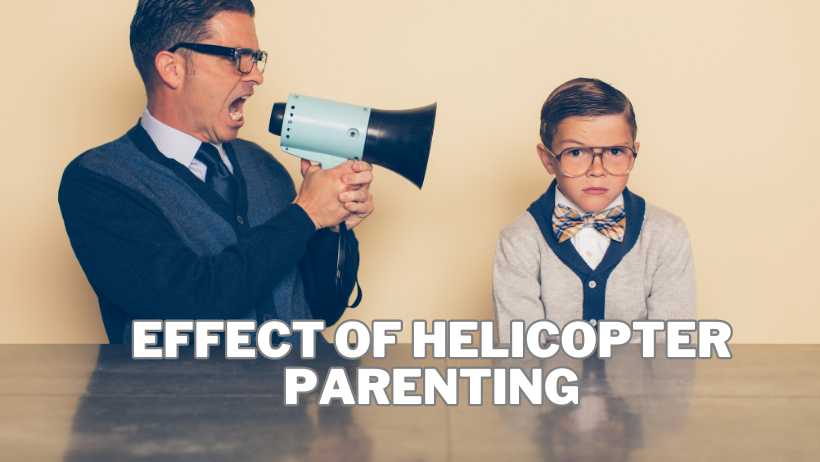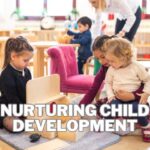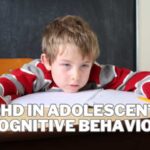
Discover the negative effects of helicopter parenting on children’s independence, including low self-esteem, anxiety, and lack of decision-making skills. Learn how to liberate children from this stifling phenomenon.
Imagine a world where children are encouraged to spread their wings and explore the vast possibilities that life has to offer. A world where they are independent, self-reliant, and confident in their abilities. Unfortunately, this is not always the case, as the rise of helicopter parenting has hindered children’s journey towards independence. In this article, we will explore the detrimental effects of helicopter parenting on children’s independence, and how we can liberate them from this stifling phenomenon.
Psychological Impact
Low self-esteem
Helicopter parenting can have a negative impact on a child’s self-esteem. Constant intrusion and overprotection can make children doubt their abilities and undermine their sense of self-worth. When parents constantly intervene, children may begin to question their competence and feel inadequate compared to their peers. This can lead to a perpetual cycle of low self-esteem, as children start to believe that they are incapable or not good enough.
Anxiety
The overbearing nature of helicopter parenting can also contribute to increased anxiety levels in children. Constant monitoring and hovering can create a sense of pressure and fear of failure. Children who are constantly under scrutiny may develop a fear of making mistakes, as they fear disappointing their parents. This anxiety can manifest in various ways, such as trouble sleeping, difficulty concentrating, and even physical symptoms like headaches or stomachaches.
Dependence
One of the most prominent impacts of helicopter parenting is the development of dependence in children. When parents continuously intervene and make decisions on behalf of their children, it hinders their ability to develop independence and self-reliance. Consequently, children become reliant on their parents for even the simplest tasks and struggle to navigate the world on their own. This dependence can limit their growth, prevent them from developing essential life skills, and hinder their overall development.
Lack of Decision-making Skills
Difficulty making choices
Due to being constantly directed and guided by their helicopter parents, children may struggle with making decisions independently. The lack of practice in decision-making can leave them feeling overwhelmed when confronted with choices as they grow older. Simple decisions, such as choosing what to wear or what extracurricular activities to join, become daunting tasks. Their reliance on parental involvement for decision-making inhibits their ability to trust their instincts and make choices confidently.
Inability to problem-solve
Helicopter parenting can hinder a child’s ability to develop effective problem-solving skills. When parents excessively intervene to solve problems or shield their children from challenges, children miss out on valuable opportunities to learn from their mistakes and find solutions on their own. This can lead to a lack of resourcefulness and creativity when faced with obstacles, as children become accustomed to relying on their parents for solutions.
Lack of confidence in decision-making
A direct consequence of helicopter parenting is the erosion of a child’s confidence in their decision-making abilities. Constant parental involvement can make children doubt their judgment and fear the consequences of making choices independently. They may believe that they are not capable of making good decisions on their own. This lack of confidence can persist into adulthood, leading to an overall hesitancy and insecurity in making important life choices.
Limited Autonomy
Lack of personal agency
Helicopter parenting often results in limited autonomy for children. Constant surveillance and control impede the development of personal agency, preventing children from becoming independent individuals capable of asserting their own desires and needs. They may feel that their thoughts and opinions are not valued and gradually lose confidence in expressing themselves. As a result, these children may struggle to find their authentic voice and may be more susceptible to external influences.
Restricted exploration and curiosity
The overprotective nature of helicopter parenting can stifle a child’s natural sense of exploration and curiosity about the world. Constant parental interference can create a narrow and controlled environment, limiting opportunities for children to learn through trial and error. This lack of freedom to explore can hinder a child’s cognitive, social, and emotional development, as they are denied the chance to discover their own interests, passions, and personal boundaries.
Reliance on parental guidance
Another consequence of helicopter parenting is the over-reliance on parental guidance in decision-making and problem-solving. Children who are constantly supervised and directed by their parents may struggle to develop confidence in their own abilities to navigate challenges or make choices. Instead of being self-reliant, they become dependent on their parents for guidance and reassurance in every aspect of their lives. This reliance can prevent them from developing the skills necessary to face the complexities of adulthood with autonomy.
Inadequate Coping Mechanisms
Difficulty handling failure
Children raised under helicopter parenting are often shielded from failure and protected from the consequences of their actions. While this may seem beneficial in the short term, it deprives them of the opportunity to develop resilience and coping mechanisms. When faced with failure or setbacks, these children may struggle to handle the emotions that come with it and lack the skills to bounce back from adversity. Instead of using failure as a learning experience, they may feel overwhelmed and defeated.
Lack of resilience
Helicopter parenting can hinder the development of resilience in children. By constantly swooping in to fix problems or protect their children from challenges, parents prevent them from building the necessary skills to withstand difficulties. Resilience requires learning how to adapt, problem-solve, and recover from setbacks independently. When children are constantly sheltered from adversity, they miss out on valuable opportunities to cultivate their resilience and develop their inner strength.
Inability to deal with challenges independently
One of the most notable consequences of helicopter parenting is the lack of ability to independently navigate and overcome challenges. The constant presence of parents to oversee and intervene in every difficulty leaves children ill-equipped to handle obstacles on their own. As they grow older, they may struggle to cope with the demands of daily life, as they never had the chance to develop the necessary skills and mindset to face challenges independently. This dependence on external support can hinder their personal growth and hinder their ability to become autonomous adults.
Underdeveloped Life Skills
Poor time management
Helicopter parenting frequently involves strict scheduling and micromanagement of a child’s time. While this may seem like a way to ensure productivity, it can have negative consequences on a child’s time management skills. When every minute of their day is tightly controlled by their parents, children miss out on the opportunity to learn how to prioritize, manage their time effectively, and take responsibility for their own schedules. This deficiency in time management skills can persist into adulthood, impacting their ability to balance commitments and meet deadlines.
Weak organizational skills
Constant parental hovering can also impede the development of strong organizational skills in children. When parents take charge of organizing and managing their children’s lives, children do not have the chance to learn and practice strategies for organizing their belongings, managing their tasks, and maintaining order in their daily lives. The lack of organizational skills can lead to difficulties in school, work, and personal life. It may manifest as forgetfulness, disarray, and an overall sense of chaos in their routines.
Inability to handle responsibilities
Children raised under helicopter parenting often struggle with assuming responsibility for their actions and obligations. When parents continuously shield their children from responsibilities and fix their mistakes, children may fail to understand the consequences of their actions and the importance of taking ownership of their responsibilities. As a result, they may develop a sense of entitlement and struggle to become accountable individuals who can be relied upon to fulfill their obligations.
Delayed Emotional Development
Limited emotional regulation
Helicopter parenting can impede a child’s emotional development by preventing them from effectively learning how to regulate their emotions. When parents constantly intervene to resolve conflicts, shield their children from distress, or prioritize their own comfort over their children’s emotional growth, children miss out on the opportunity to develop healthy coping mechanisms. As a result, they may struggle to regulate their emotions as they age, leading to emotional outbursts, difficulty managing stress, and challenges in building healthy relationships.
Dependency on parental validation
Children raised under helicopter parenting often develop a strong need for parental validation and approval. The constant monitoring, intervention, and direction from their parents condition them to rely on external validation to feel competent or worthy. As a consequence, they may struggle with making decisions, setting boundaries, or pursuing their own goals without seeking constant approval from their parents. This dependency on parental validation can hinder their ability to become emotionally independent and confident individuals.
Lack of emotional independence
Helicopter parenting can hinder a child’s ability to develop emotional independence and autonomy. The constant presence of parents in their lives, making decisions and managing their emotions, leaves children ill-prepared to navigate and understand their own emotional experiences. As they grow older, they may struggle to identify and articulate their own emotions, rely excessively on others for emotional support, and find it challenging to develop healthy coping mechanisms. This lack of emotional independence can have lasting effects on their overall well-being and relationships.
Strained Peer Relationships
Difficulty forming friendships
Helicopter parenting can have a detrimental impact on a child’s ability to form meaningful and healthy friendships. Children who have been constantly supervised and controlled by their parents may struggle to develop the necessary social skills to initiate and maintain friendships. They may lack the confidence to interact with their peers or fear social rejection. Additionally, the lack of independence and reliance on parental guidance can create barriers to forming genuine connections with others.
Lack of assertiveness
The overprotectiveness of helicopter parenting can hinder a child’s assertiveness in social situations. Constant direction and parental intervention may prevent children from developing the necessary skills to express their thoughts, opinions, and desires confidently. They may feel hesitant to assert themselves or fear conflict, as they have been accustomed to their parents taking the lead in decision-making. This lack of assertiveness can make it challenging for children to establish boundaries and advocate for themselves in peer relationships.
Unfamiliarity with conflict resolution
Helicopter parenting often involves parents stepping in and mediating conflicts for their children. While this may seem like a way to prevent discomfort, it hinders a child’s ability to learn how to navigate and resolve conflicts independently. Without the opportunity to practice conflict resolution skills, children may struggle to communicate effectively and find mutually agreeable solutions when conflicts arise. This can lead to strained peer relationships and an inability to handle disagreements in a healthy and constructive manner.
Academic Consequences
Lack of motivation
Children raised under helicopter parenting may experience a lack of intrinsic motivation when it comes to academics. The constant pressure and focus on achievement can create a mindset where children prioritize external rewards and approval over genuine interest in learning. Their motivation becomes driven by the fear of disappointing their parents or the desire to meet excessively high expectations, rather than a curiosity and passion for knowledge. This lack of intrinsic motivation can hinder their academic progress and diminish their joy in learning.
Limited problem-solving abilities in academics
Helicopter parenting can hinder a child’s ability to develop problem-solving skills specifically related to academics. When parents intervene and provide solutions, children miss out on the opportunity to grapple with academic challenges independently. As a result, they may lack the ability to think critically, analyze problems, and develop creative solutions. This limitation can have long-term consequences, as problem-solving skills are vital for success not only in academics but also in various aspects of life.
Inability to handle academic challenges
Children who have experienced helicopter parenting may struggle to cope with academic challenges due to their lack of experience in independently overcoming obstacles. Without the opportunity to face setbacks, make mistakes, and develop resilience, these children may become easily overwhelmed or disheartened when confronted with difficult tasks. They may seek constant reassurance or avoid challenging situations altogether, inhibiting their ability to grow academically and limiting their potential for success.
Overwhelmed by Adult Responsibilities
Inability to handle adult tasks
The constant intervention and control of helicopter parenting can leave children ill-prepared to handle the responsibilities that come with adulthood. When parents take charge of tasks and decision-making throughout a child’s life, they may struggle to transition into adulthood, where independence and self-reliance are crucial. Basic skills such as managing finances, navigating the job market, or finding housing can become overwhelming and intimidating for these individuals, as they lack the experience and confidence in handling adult tasks.
Dependency on others for basic needs
Helicopter parenting can create a dependency mindset in children, even as they enter adulthood. The constant support and problem-solving provided by parents may instill the belief that they need others to meet their basic needs. These individuals may struggle to take care of themselves independently, relying on others for financial, emotional, or practical support. This dependency can hinder their ability to establish their own identity, make autonomous decisions, and navigate the challenges of adult life.
Difficulty transitioning into adulthood
The effects of helicopter parenting can make the transition into adulthood especially challenging for children. Without the opportunity to develop autonomy, decision-making skills, or problem-solving abilities, these individuals may feel overwhelmed by the newfound responsibilities and expectations that come with adulthood. They may struggle to navigate the complexities of relationships, career choices, and personal development. The lack of independence and self-confidence can hinder their ability to adapt and thrive in the adult world.
Impact on Mental Health
Increased risk of depression
Helicopter parenting can contribute to an increased risk of depression in children. The constant scrutiny, pressure to meet high expectations, and lack of autonomy can take a toll on their mental well-being. The feeling of not being good enough or constantly striving for perfection can lead to feelings of sadness, hopelessness, and worthlessness. Additionally, the anticipatory anxiety of making mistakes or disappointing their parents can contribute to a sense of hopelessness and contribute to the development of depressive symptoms.
Higher levels of stress and anxiety
The overprotective nature of helicopter parenting can result in heightened levels of stress and anxiety in children. The constant monitoring and intense focus on achievement can create a stressful environment that leaves children feeling overwhelmed and under constant pressure to perform. Additionally, the lack of autonomy and independence can generate anxiety about decision-making and coping with everyday challenges. The cumulative effect of these stressors can increase anxiety levels and impair a child’s overall well-being.
Possible feelings of inadequacy
Helicopter parenting may lead to feelings of inadequacy in children. The constant comparison to peers, high expectations, and lack of personal agency can contribute to a persistent sense of not measuring up. Children may feel that their achievements are never enough and struggle with feeling inadequate or inferior to others. This sense of inadequacy can undermine their self-esteem, confidence, and overall mental health. It can also create an unhealthy mindset where they constantly seek external validation to counteract these feelings.


















